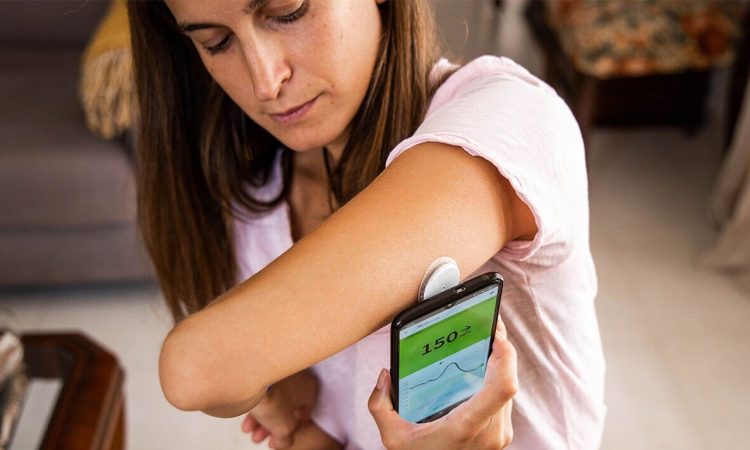Diabetes type 2: Dr Zoe Williams discusses high blood sugar risks
We use your sign-up to provide content in ways you’ve consented to and to improve our understanding of you. This may include adverts from us and 3rd parties based on our understanding. You can unsubscribe at any time. More info
People living with diabetes have high blood sugar levels. Depending on the type they have this will be for different reasons. In type 1 diabetics this occurs when the immune system attacks cells that produce insulin.
Whereas, in type 2 diabetes this happens if the body does not produce enough insulin, or the body’s cells do not react to insulin.
Either way, diabetics are encouraged to stick to a healthy, balanced diet.
This means avoiding foods that are high in sugar, fat and salt, while eating plenty of fruit and vegetables, protein and certain starchy carbohydrates.
One fruit in particular could be especially beneficial to diabetics.

Registered nutritional therapist Orley Kutner recommended adding okra to meals.
She said: “Okra (or lady’s fingers) contains a special type of insoluble fibre that may help stabilise blood glucose by slowing the rate at which sugar is absorbed from the intestines.
“It has traditionally been used as a diabetes treatment and recent human clinical studies have shown promising results.
“Add it to soups, stews and curries, or chop up and soak overnight and drink the water in the morning (do not try this if you’re taking diabetes medications).”
Okra is popular in various cuisines including Caribbean, Creole, Cajun and Indian but can be bought in the UK.
Although it is technically a fruit, it appears and is used more like a vegetable within cooking.
What does research say?
Various studies have considered the effects of okra on blood sugar levels.
One, published in Phytotherapy Research journal in 2020, trialled the use of okra powder on 60 type 2 diabetics.

Participants were split into groups with one given 10 grams of okra powder blended into 150g of yoghurt and the other was just given 150g of yoghurt.
Both groups ate this with their lunch and dinner every day for eight weeks.
The study said: “The findings showed that eight weeks okra consumption resulted in a significant decrease in fasting plasma glucose homeostatic model of assessment for insulin resistance, quantitative insulin sensitivity check index, triacylglycerol, total cholesterol, low-density lipoprotein cholesterol, and LDL-C/high-density lipoprotein cholesterol (HDL-C) ratio.”
It concluded: “The present study suggests that okra consumption can elicit improvements in lipid profile, as well as glycemic markers, among type 2 diabetes patients.”

Separate research published in the same journal in 2022 compared results from two groups of 60 diabetic people.
One group was given 1,000mg of okra capsules orally, every six hours for eight weeks, while the control group received a placebo capsule in the same manner.
“The levels of fasting blood sugar (FBS), blood sugar (BS), and haemoglobin A1C (HgA1c) were significantly decreased in okra group within the intervention compared to control group,” it said.
“Okra whole fruit supplementation has a promising anti-hyperglycemic effect in patients with diabetes mellitus type 2 who received oral agents. Diabetic patients could benefit from adjuvant therapy of okra with other medication.”
Source: Read Full Article
